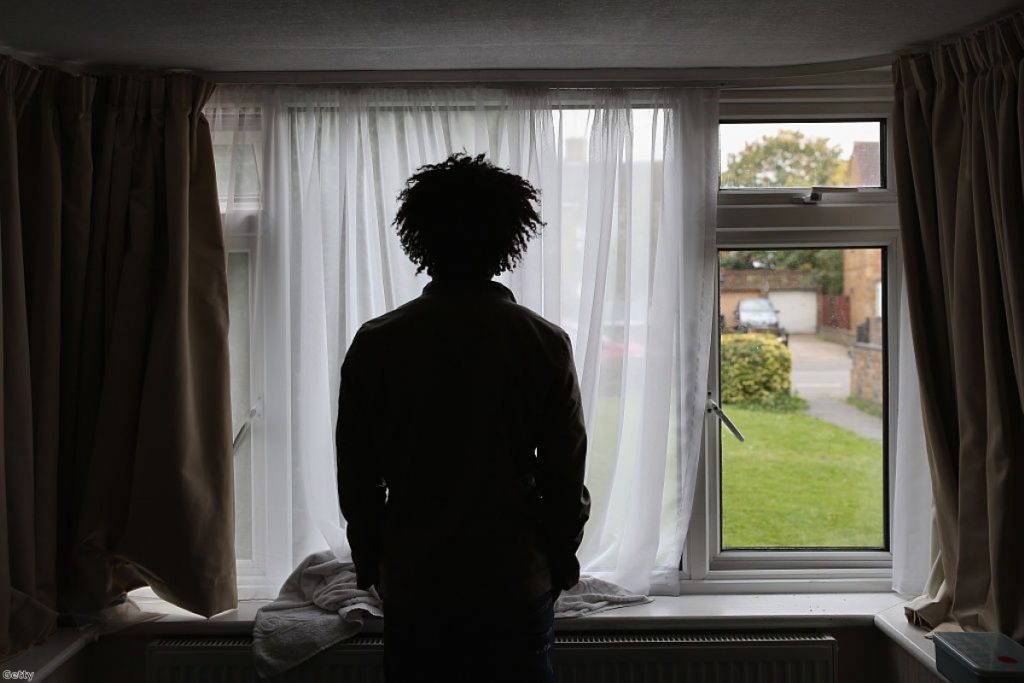Racist thugs take a lesson from the Home Office’s hostility to immigrants
By Steve Symonds
Two stories in the past week have exposed just how hostile life is for those seeking asylum in the UK. In Teeside, asylum seekers were abused and threatened by local thugs, after a Home Office housing contractor painted all their front doors red. Next, came news that asylum seekers had been singled out in Cardiff by a different Home Office contractor requiring them to wear a coloured wristband without which they would be refused food.
In both cases, negative press forced the companies concerned to reverse their policies, while the Home Office sought to downplay the stories. In both cases, the Home Office claimed that nobody had complained. It has since been reported that concerns were raised but ignored. However, the Home Office didn't stop to wonder why so many of those who felt victimised didn't want to make formal complaints.
An important part of the reason relates to the wider experiences of the people identified by red doors and wristbands. Many fleeing persecution have long suffered from being singled out in their home countries, where authorities who should be protecting them either direct or compound their abuse. For those who may have been beaten and robbed by border guards or CS-gassed by police before arriving in the UK, their experiences will only have made them more suspicious of police and other public officials.


Home Office treatment of people claiming asylum does not always inspire confidence either – not least when people receive asylum refusal letters questioning their integrity for spurious reasons, and which in some cases even refer to countries and other details that have nothing to do with the person's claim.
So why are so many so quick to dismiss concerns over the red doors and wristbands? Why is it not obvious that being required, for example, to wear a wristband that singles you out as belonging to a group so widely vilified, in order simply to eat, is not the same as having a nightclub stamp? Why is it not obvious that being marked out as a clubber is not the same as being marked out as seeking asylum?
One possible answer is that the hatred felt by those who spread excrement over the doors on Teesside is far more commonplace in our society than it might appear. Certainly, comment threads below pieces like this one often indicate there is some truth to that. But I for one do not think it provides a sufficient explanation. Not all – or even nearly all – of those who have been so blasé about these particular policies have an underlying vicious intent.

The government has engaged in agressive rhetoric against asylum seekers
The real answer lies in the current social and political environment. The government has deliberately decided to create what the home secretary calls a 'hostile environment' in both policy and rhetoric, and the targets for that hostility are – in broad terms – migrants, or those believed to be migrants.
Of course, ministers would say their hostile environment is aimed only at those who are here without any entitlement to be so. But there are two problems with that. Firstly, whatever one's views about immigration control, spreading hostility is simply an inappropriate policy ambition whoever the intended target is. Secondly, it is simply not possible to control it.
So when ministers – from the prime minister down – dehumanise refugees as 'swarms' and suggest that such people constitute a threat to our way of life, these are not merely passing aberrations. When victims of abuse are denied access to support and assistance in order to challenge that abuse, it's not a one-off case. In recent years the government has cut legal aid, withdrawn access to judicial review and ramped up the rhetoric against those seeking asylum in the UK.
Faced with such a hostile environment, is it any wonder that racist thugs feel able to act with impunity while the victims continue to suffer in silence?
Steve Symonds is Amnesty UK's refugee and migrant rights programme director
The opinions in Politics.co.uk's Comment and Analysis section are those of the author and are no reflection of the views of the website or its owners.












